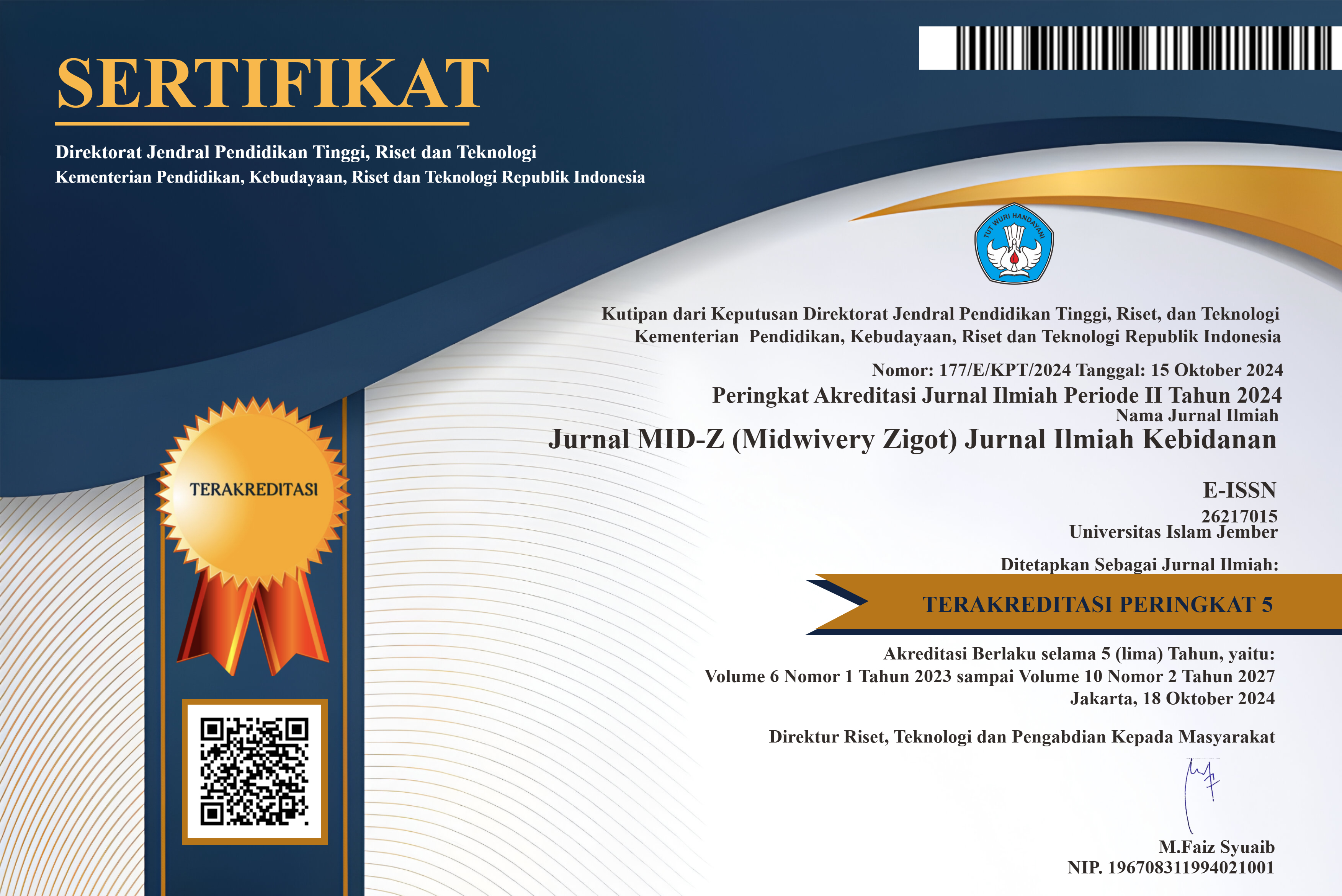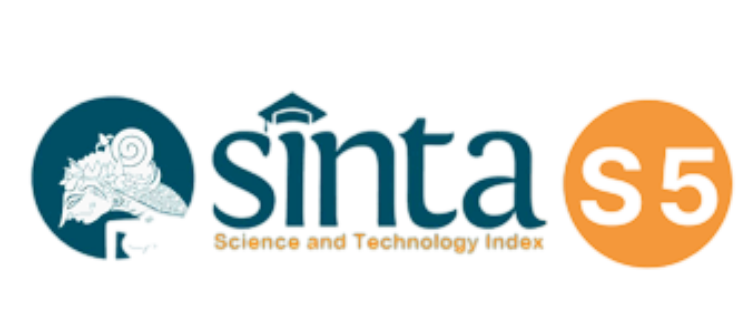The Effect of Baby Massage on Defecation Frequency in Babies Aged 6-12 Months
DOI:
https://doi.org/10.56013/jurnalmidz.v7i1.2778Abstract
Defecation is the process of removing waste products from the rectum, which are materials the body has not needed for a long time and need to be removed. In newborns, the normal change
in stool frequency happens between 6 and 12 months of age;
at this time, irregularities in the frequency of bowel movements
are linked to malnutrition and weight loss. Bowel motions occur
in babies at different rates, ranging from 8–10 times per day to 2-3 times per week. In Indonesia, up to 73.2% of kids suffer from digestive issues, specifically constipation and diarrhea. There are pharmaceutical and non-pharmacological treatments available for the treatment of gastrointestinal diseases. Non-pharmacological therapy combined with massage therapy, and pharmaceutical therapy combined with medication delivery. This study set out to find out how often infants between the ages of 6 and 12 months had bowel movements in response to massage. Pre-experimental methodology with a single group pretest-posttest design is used in this kind of study. Using purposive sampling procedures, a sample of up to 29 infants between the ages of 6 and 12 months was acquired from Federer's formula. The Wilcoxon test findings showed a p-value of 0.000, indicating that there is a relationship between infant massage and the frequency of bowel movements in newborns (p < 0.005). In conclusion, massage therapy for infants has an impact on how frequently 6 to 12-month-olds poop.
Downloads
Published
How to Cite
Issue
Section
License
Copyright (c) 2024 Pramodya ardhana, , Reny Retnaningsih

This work is licensed under a Creative Commons Attribution-ShareAlike 4.0 International License.
Jurnal Mid-Z (Midwifery Zigot) Jurnal Ilmiah Kebidanan memberikan akses terbuka terhadap siapapun agar informasi dan temuan pada artikel tersebut bermanfaat bagi semua orang. Semua konten artikel Jurnal Mid-Z (Midwifery Zigot) Jurnal Ilmiah Kebidanan dapat diunduh secara gratis tanpa dipungut biaya sesuai dengan lisensi creative commons yang digunakan.

Jurnal Mid-Z is licensed under a Creative Commons Attribution 4.0 International License






















